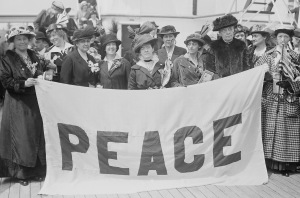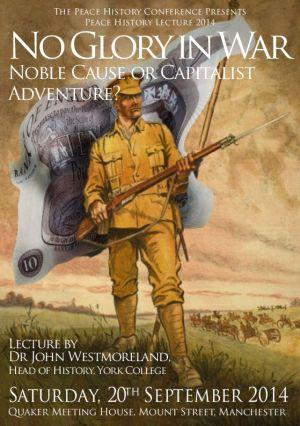Manchester council paid out almost £600,000 in damages to victims in the last year alone, an M.E.N. investigation has found.
The 2013/14 claims had to be settled using taxpayers’ money, rather than through insurance as the cases predated the 1980s when the council did not have asbestos cover.
Figures obtained under Freedom of Information requests reveal victims of asbestos-related diseases have won a total of £1.8m in damages from
councils in Greater Manchester in recent years.
Campaigners believe payments are likely to soar over the coming decade as more people fall ill and die after being exposed to the material.
Mesothelioma in numbers
1,500
Number of mesothelioma deaths in GM in last 30 years
90
Number of deaths in 2011
£1.8m
What our councils have paid out in damages
The compensation claims came from victims who breathed in asbestos fibres in buildings like schools, offices and community centres.
It can cause mesothelioma, a rare form of cancer, which attacks the lining of organs and is always fatal.
The number of people killed by the disease has soared by 500 per cent in the last 30 years – with new cases expected to peak in 2020.
The number of people killed by the asbestos-related cancer has soared by 500 per cent between 1982 and 2011.
Figures, released by the Health and Safety Executive, show that 90 people died of mesothelioma in Greater Manchester in 2011 – compared to 15 in 1982.
Deaths from the asbestos-related cancer, which is always fatal, peaked at 100 in 2010, according to the statistics.
Graham Dring, coordinator of Greater Manchester Asbestos Victims Support Group, said: “Compensation payouts will probably rise as new mesothelioma cases continue to increase.
“The dangers of asbestos have been known about for decades but too often ignored.
“The epidemic we see now was a man-made disaster and avoidable. Profits were put before the health and safety of working men and women who are the ones paying the price for employer and political negligence.”
Mesothelioma in figures
700: Number of schools which still contain asbestos
£150k: Amount Bury council paid to a fireman exposed to asbestos
500%: Rise in cases since 1982
At least 1,600 of the region’s local authority buildings – including 700 schools – still contain asbestos, which was widely-used in the construction industry from the 1950s until the 1990s.
It is thought the majority of asbestos victims to date will have been construction workers - although Mr Dring said he expected professions like teachers, office workers and caretakers to be increasingly affected in the future.
Between them, the region’s councils have spent millions managing asbestos over the last five years – including carrying out repair work on buildings and surveys in schools.
But Mr Dring said: “The risks will continue if the dangers of asbestos in our public buildings is not taken seriously.
"In an ideal world, asbestos should be stripped from all public buildings, especially schools, where there is risk of children being exposed. In an era of financial restraints, this may not be realistic in the short term.
“However, we think local authorities should have a programme and targets for removing asbestos where and when they can.”
The Asbestos Victims Support Groups Forum UK organised a lobby at this week’s Labour conference in Manchester - calling for guaranteed research funding, paid for by a levy on insurers and matched by Government funding, to find a cure for mesothelioma.
They are also demanding full compensation for victims who cannot find an employer or insurer under the ‘Diffuse Mesothelioma Payments Scheme’ - rather than the current 80 per cent paid out.
My husband was pleased to see the town hall accept blame before he died
A retired heating engineer who contracted mesothelioma through work found out he had won damages from Manchester council just three weeks before he died.
William Berisford was exposed to asbestos while fitting and repairing boilers during his 30 years at the town hall’s direct works department.
He was diagnosed with mesothelioma in May last year and doctors at
Wythenshawe Hospital gave him 12 months to live.
The 75-year-old survived for only eight months - just long enough to see the council agree to pay him compensation.
His widow Joan Berisford,
from Heald Green, Stockport, described the sum as ‘reasonable’ and said her husband was pleased to see the town hall accept blame before he died.
But she added his death had left her angry because their retirement together had been ‘snatched away’.
Mrs Berisford said: “He could have had another 10 years. We were at the stage where we were going on holiday often and going out often, just generally enjoying our retirement. That has been snatched away from us now.”
Grandmother-of-two Mrs Berisford, 74, told how the cancer diagnosis ‘devastated’ the couple, who would have been married 55 years this year.
She added: “That first day we found out we both cried all day. But after that, Bill took it on the chin.
“The last two to three months were awful. He was on oxygen and every time he stood up he fell over. In the end, we were just glad to see him not suffer any more.”
Mrs Berisford said she had ‘strong views’ about asbestos and believed it should be stripped from public buildings, especially schools, to prevent more people suffering like her husband did.
Pauline Chandler, a specialist in asbestos disease cases at Manchester law firm Slater & Gordon, which represented Mrs Berisford, said: “We have successfully concluded a number of cases against the council for asbestos-related claims, many of them like Mrs Berisford’s are sadly fatal.
“The widespread use of asbestos, in and on council premises in the 1950s right through to the 1980s, mean we expect to see even more people coming forward with claims.
"It is hoped the council faces up to its responsibilities regarding such cases and settles them as quickly as possible for the sake of those affected.”
Mesothelioma: Deaths in 2011
- WIGAN: 16
- TAMESIDE: 15
- STOCKPORT: 14
- TRAFFORD: 12
- MANCHESTER: 9
- BOLTON: 7
- BURY: 7
- MANCHESTER: 9
- OLDHAM: 5
- ROCHDALE: 4
- SALFORD: 1
Total: 90
How much has been paid to victims so far
Bolton council: £440,000 for exposure to asbestos dating back to 1960.
Bury council: £150,000 in 2013 to a fireman exposed to asbestos between 1958 and 1974.
Salford council: £118,000 in compensation for exposure going back to 1959.
Tameside council: £165,000 on two claims – one in 2012 and one in 2014.
Trafford council: £50,000 in 2013/2014 following a claim of exposure to asbestos at a community centre in Sale around 1949.
Wigan council: The council and its insurers paid out £295,000 since 2001 on six claims relating to exposure between the 1950s and 1980s in local authority offices, schools and sites.
Oldham, Rochdale and Stockport councils have not paid any damages relating to asbestos-related diseases.
http://www.manchestereveningnews.co.uk/news/greater-manchester-news/ticking-timebomb-asbestos-compensation-crisis-7832859














